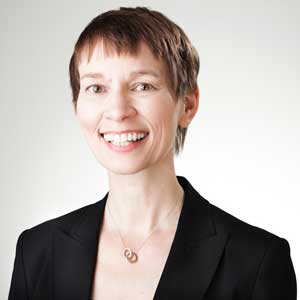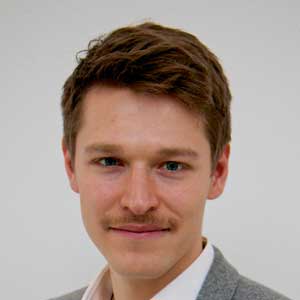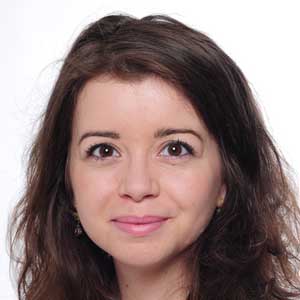Metropolis Policy Transfer Platform Shares Urban Best Practices Worldwide

Who will you meet?
Cities are innovating, companies are pivoting, and start-ups are growing. Like you, every urban practitioner has a remarkable story of insight and challenge from the past year.
Meet these peers and discuss the future of cities in the new Meeting of the Minds Executive Cohort Program. Replace boring virtual summits with facilitated, online, small-group discussions where you can make real connections with extraordinary, like-minded people.
At the beginning there was frustration. Why is it so hard to find and compare examples of innovative projects in other cities? Where can I look first? And who can I contact in order to learn more about an initiative that interests me?
Today there are numerous urban news websites, learning platforms, good practice databases, awards and competitions one can turn to for information, but the search often remains fragmented, random and incoherent. While some platforms are limited to a specific topic, others only focus on projects from a particular region.
What is more, there are dozens of international urban awards – sponsored mainly by institutions, individual cities or city networks for promotional reasons – that regularly award prizes to recognize internationally innovative urban development projects across a variety of categories. Awards cycles also vary in frequency, and prizes are given either annually, or every two or three years.
As a result, it has been almost impossible to get an overview of the most promising projects that are being implemented in our cities today. Moreover, there hasn’t been a standardised format in which to publish a case study and tag it, either. Consequently, experts have to invest a great deal of time and energy when carrying out research.
The city of Berlin set out to change this and launched the METROPOLIS Policy Transfer Platform in 2014. Having been initially designed to help the 140 METROPOLIS member cities to be able to continue to exchange ideas and experiences in the periods between annual conferences, it quickly became an open platform for internationally recognised projects and experts.
Our platform is a learning and exchange platform for both practitioners and other experts who concern themselves with urban development projects. A good third of our registered users work for metropolitan and local authorities; one third are academics and researchers, and the remainder are companies, NGOs and citizens’ action groups.
There are two ways of contributing content to the platform.
As an individual, I can contribute by creating my own expert profile and uploading a new case study. We then check to ensure that the uploaded material is legitimate and sound and sometimes carry out a small amount of editing. In this way, the platform crowdsources content from professionals in the urban field from across the world. All the information on the platform is public, so normal users can use it for their research too.
The second way in which we add content to the platform is through our partnerships with award secretariats. We work closely with the secretariats and help them to republish their case studies on our platform in a unified format. We then get in touch with the local project contacts in the cities as well, and encourage them to sign up on the platform. In this way, they can keep their own case study regularly updated and their peers can contact them with questions via the platform’s secure messaging system.
About one in four case studies on our platform has been recognised by an international award, either as a short-listed or as a winning project. To highlight this achievement and this indication of quality, these projects also rank higher in our search results.
To give you just a few examples, the projects on our platform have been recognised by the METROPOLIS Award, Guangzhou Award, EUROCITIES Award, Deutsche Bank Urban Age Award, European Green Capital Award, Dubai International Award, Lee Kuan Yew World City Prize and others.
On the Policy Transfer Platform, you will find hundreds of experts and case studies telling the story behind the world’s most innovative urban projects. You can search by region, topic, instrument and award.
With this open and free resource, Berlin hopes to increase the flow of ideas and experiences between cities. For comments, ideas and partnership requests, please contact: policytransfer@metropolis.org.
About the Authors:
 Barbara Berninger is Head of the Division for EU and International Affairs at Berlin’s Senate Department for Urban Development and the Environment. She is also the Regional Secretary Europe for the METROPOLIS city network and Chair of the Berlin Initiative on Policy Transfer.
Barbara Berninger is Head of the Division for EU and International Affairs at Berlin’s Senate Department for Urban Development and the Environment. She is also the Regional Secretary Europe for the METROPOLIS city network and Chair of the Berlin Initiative on Policy Transfer.
 Jonas Schorr coordinates all partnership and communications activities of the platform and oversees its technical development. (Twitter: @JonasSchorr)
Jonas Schorr coordinates all partnership and communications activities of the platform and oversees its technical development. (Twitter: @JonasSchorr)
 Camille Toggenburger manages the community of the Policy Transfer Platform. She reviews all incoming submissions, works with the platform partners and contributes to the overall development of the platform.
Camille Toggenburger manages the community of the Policy Transfer Platform. She reviews all incoming submissions, works with the platform partners and contributes to the overall development of the platform.
Discussion
Leave your comment below, or reply to others.
Please note that this comment section is for thoughtful, on-topic discussions. Admin approval is required for all comments. Your comment may be edited if it contains grammatical errors. Low effort, self-promotional, or impolite comments will be deleted.
1 Comment
Submit a Comment
Read more from MeetingoftheMinds.org
Spotlighting innovations in urban sustainability and connected technology
Middle-Mile Networks: The Middleman of Internet Connectivity
The development of public, open-access middle mile infrastructure can expand internet networks closer to unserved and underserved communities while offering equal opportunity for ISPs to link cost effectively to last mile infrastructure. This strategy would connect more Americans to high-speed internet while also driving down prices by increasing competition among local ISPs.
In addition to potentially helping narrow the digital divide, middle mile infrastructure would also provide backup options for networks if one connection pathway fails, and it would help support regional economic development by connecting businesses.
Wildfire Risk Reduction: Connecting the Dots
One of the most visceral manifestations of the combined problems of urbanization and climate change are the enormous wildfires that engulf areas of the American West. Fire behavior itself is now changing. Over 120 years of well-intentioned fire suppression have created huge reserves of fuel which, when combined with warmer temperatures and drought-dried landscapes, create unstoppable fires that spread with extreme speed, jump fire-breaks, level entire towns, take lives and destroy hundreds of thousands of acres, even in landscapes that are conditioned to employ fire as part of their reproductive cycle.
ARISE-US recently held a very successful symposium, “Wildfire Risk Reduction – Connecting the Dots” for wildfire stakeholders – insurers, US Forest Service, engineers, fire awareness NGOs and others – to discuss the issues and their possible solutions. This article sets out some of the major points to emerge.
Innovating Our Way Out of Crisis
Whether deep freezes in Texas, wildfires in California, hurricanes along the Gulf Coast, or any other calamity, our innovations today will build the reliable, resilient, equitable, and prosperous grid tomorrow. Innovation, in short, combines the dream of what’s possible with the pragmatism of what’s practical. That’s the big-idea, hard-reality approach that helped transform Texas into the world’s energy powerhouse — from oil and gas to zero-emissions wind, sun, and, soon, geothermal.
It’s time to make the production and consumption of energy faster, smarter, cleaner, more resilient, and more efficient. Business leaders, political leaders, the energy sector, and savvy citizens have the power to put investment and practices in place that support a robust energy innovation ecosystem. So, saddle up.






Wonderful